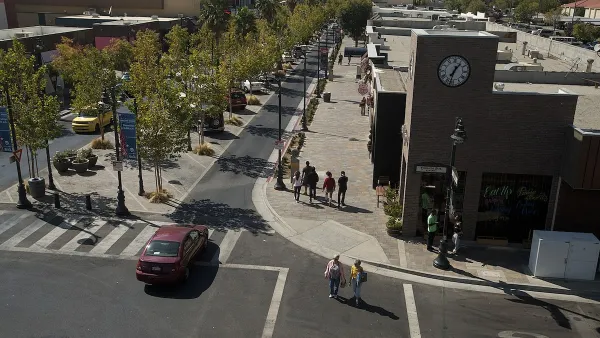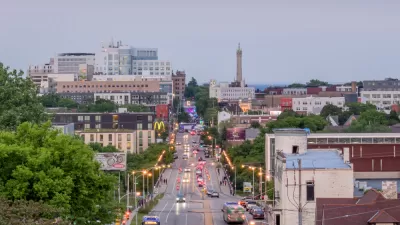Although nearly 500 localities around the U.S. have created complete streets policies, there is no federal mandate that they do so. That may soon change if a bipartisan bill introduced last week in the House of Representatives is passed.
"At a briefing yesterday on Capitol Hill, representatives of the National Complete Streets Coalition made the case for national standards for complete streets policies," reports Olivia Starr, the APA's Government Affairs Associate. "This is one of the central proposals of the Safe Streets Act of 2013 [PDF] (H.R. 2468), also introduced yesterday by Reps. Matsui (D-CA) and Joyce (R-OH)."
"The Safe Streets Act would require that each state and metropolitan planning organization adopt a complete streets policy within two years that ensures all new federally-funded transportation projects accommodate the safety and convenience of all users," explains Starr. "The bill defines transportation projects as road construction and road modification projects, including design, planning, construction, reconstruction, rehabilitation, maintenance, and operations."
"In her statement at the briefing, Rep. Matsui said that 'we are changing our lifestyle. We also need to change our roads.' She added that her primary motivation for supporting a set of national complete streets policy standards is improving safety for all transportation system users."
FULL STORY: House Bill Proposes National Complete Streets Policy Standards

Maui's Vacation Rental Debate Turns Ugly
Verbal attacks, misinformation campaigns and fistfights plague a high-stakes debate to convert thousands of vacation rentals into long-term housing.

Planetizen Federal Action Tracker
A weekly monitor of how Trump’s orders and actions are impacting planners and planning in America.

In Urban Planning, AI Prompting Could be the New Design Thinking
Creativity has long been key to great urban design. What if we see AI as our new creative partner?

King County Supportive Housing Program Offers Hope for Unhoused Residents
The county is taking a ‘Housing First’ approach that prioritizes getting people into housing, then offering wraparound supportive services.

Researchers Use AI to Get Clearer Picture of US Housing
Analysts are using artificial intelligence to supercharge their research by allowing them to comb through data faster. Though these AI tools can be error prone, they save time and housing researchers are optimistic about the future.

Making Shared Micromobility More Inclusive
Cities and shared mobility system operators can do more to include people with disabilities in planning and operations, per a new report.
Urban Design for Planners 1: Software Tools
This six-course series explores essential urban design concepts using open source software and equips planners with the tools they need to participate fully in the urban design process.
Planning for Universal Design
Learn the tools for implementing Universal Design in planning regulations.
planning NEXT
Appalachian Highlands Housing Partners
Mpact (founded as Rail~Volution)
City of Camden Redevelopment Agency
City of Astoria
City of Portland
City of Laramie





























